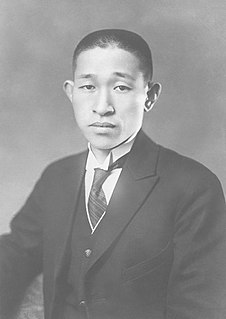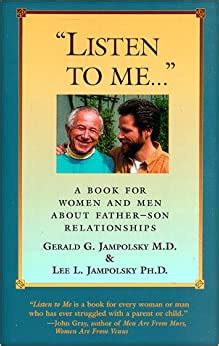A Quote by Marcus Tullius Cicero
In our amusements a certain limit is to be placed that we may not devote ourselves to a life of pleasure and thence fall into immorality.
Related Quotes
The object of our being placed upon this earth is that we may work out an exaltation, that we may prepare ourselves to go back and dwell with our Heavenly Father; and our Father, knowing the faults and failings of men has given us certain commandments to obey, and if we will examine those requirements and the things that devolve upon us we will find that they are all for our individual benefit and advancement. The school of life in which we are placed and the lessons that are given to us by our Father will make of us exactly what He desires, so that we may be prepared to dwell with Him.
Pleasure cannot be shared; like Pain, it can only be experienced or inflicted, and when we give Pleasure to our Lovers or bestow Charity upon the Needy, we do so, not to gratify the object of our Benevolence, but only ourselves. For the Truth is that we are kind for the same reason as we are cruel, in order that we may enhance the sense of our own Power.
Because we haven’t been taught to appreciate and love ourselves in this way, we don’t feel like we deserve self-care and pleasure. Instead, we cling to our To Do lists and sacrifice our health and well-being for the sake of others. Then, when we feel deprived of our basic human need for relaxation and enjoyment, we turn to food as our sole source of pleasure. When we then try to deprive ourselves of food through dieting, we deny the last bit of pleasure we have in our lives. And that strategy never works!
Those who are skilled in archery bend their bow only when they are preparing to use it; when they do not require it, they allow it to remain unbent, for otherwise it would remain unserviceable when the time for using it arrived. So it is with man. If he were to devote himself unceasingly to a dull round of business, without breaking the monotony by cheerful amusements, he would fall imperceptibly into idiocy, or be struck by paralysis
Things do fall apart. It is in their nature to do so. When we try to protect ourselves from the inevitability of change, we are not listening to the soul. We are listening to our fear of life and death, our lack of faith, our smaller ego's will to prevail. To listen to the soul is to stop fighting with life-to stop fighting when things fall apart, when they don't go our way, when we get sick, when we are betrayed or mistreated or misunderstood. To listen to the soul is to slow down, to feel deeply, to see ourselves clearly, to surrender to discomfort and uncertainty, and to wait.
Secrets are my currency: I deal in them for a living. The secrets of desire, of what people really want, and of what they fear the most. The secrets of why love is difficult, sex complicated, living painful and death so close and yet placed far away. Why are pleasure and punishment closely related? How do our bodies speak? Why do we make ourselves ill? Why do you want to fail? Why is pleasure hard to bear?
Sometimes it’s a sort of indulgence to think the worst of ourselves. We say, ‘Now I have reached the bottom of the pit, now I can fall no further,’ and it is almost a pleasure to wallow in the darkness. The trouble is, it’s not true. There is no end to the evil in ourselves, just as there is no end to the good. It’s a matter of choice. We struggle to climb, or we struggle to fall. The thing is to discover which way we’re going.
Lenten practices of giving up pleasures are good reminders that the purpose of life is not pleasure. The purpose of life is to attain to perfect life, all truth and undying ecstatic love - which is the definition of God. In pursuing that goal we find happiness. Pleasure is not the purpose of anything; pleasure is a by-product resulting from doing something that is good. One of the best ways to get happiness and pleasure out of life is to ask ourselves, 'How can I please God?' and, 'Why am I not better?' It is the pleasure-seeker who is bored, for all pleasures diminish with repetition.











































